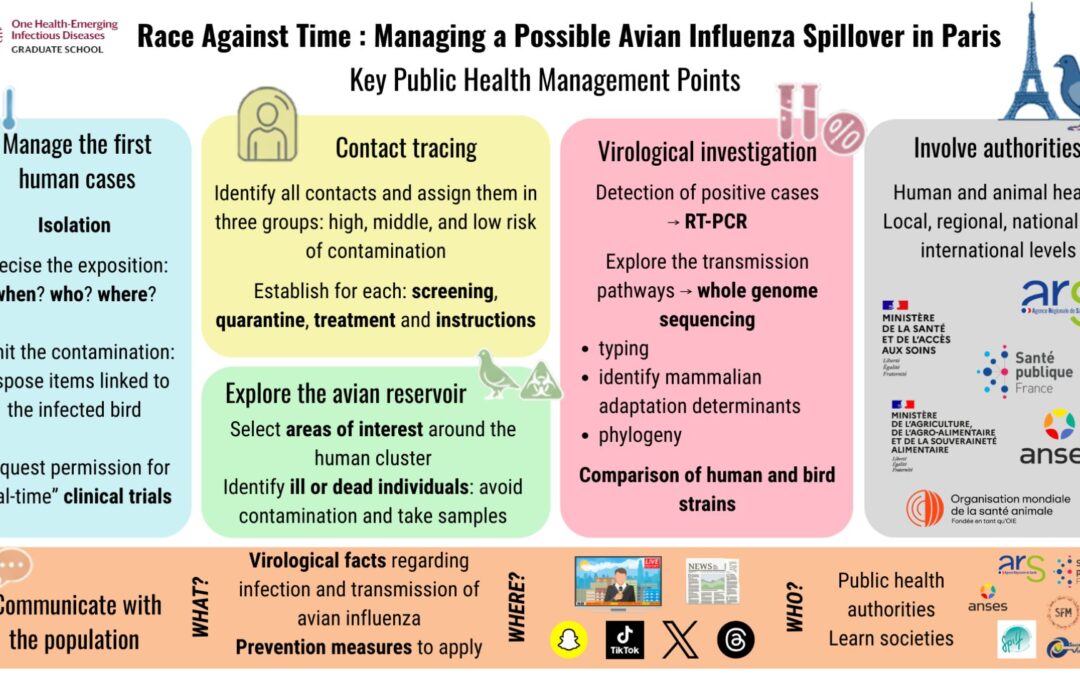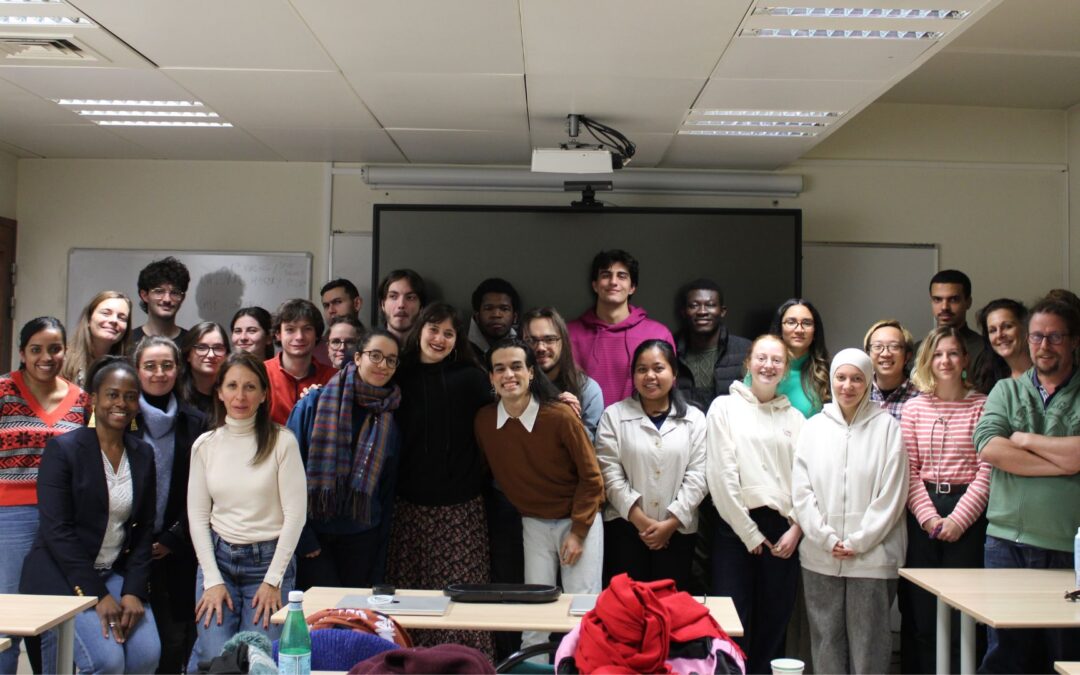Master
The Graduate School of One Health-Emerging Infectious Diseases (1H-EID) introduces a new EID cursus within the Master 1 and Master 2 in Molecular and Cellular Biology (MCB), tailored to appeal to international students with mobility scholarships and overseas placements.
Centered on Emerging Infectious Diseases (EIDs), the programme presents an extensive array of enhanced courses, alongside customised placements in premier research labs. This presents a distinctive chance to delve into various facets of research encompassing virology, microbiology, epidemiology, and social sciences.

For more information about the Master Molecular and Cellular Biology – Emerging Infectious Diseases course:
Jean-Emmanuel HUGONNET
India LECLERCQ
Sandie MUNIER
Naïm OULDALI
Hélène PERE
© Camille Perrin
In September 2023, a new cursus focusing on Emerging Infectious Diseases was created for both Master 1 and Master 2 within the Molecular and Cellular Biology Master (BMC). Mobility scholarships are available for international students, as well as scholarships for placements abroad as part of this cursus.
First-year curriculum
In Master 1, the Emerging Infectious Diseases (EID) cursus enriches the existing curriculum in molecular biology, cell biology, bioinformatics, virology, and microbiology. It introduces new courses in computational biology, ecology, and “One Health”. Work placements in emerging infectious diseases take place in research labs associated with the Graduate School of One Health-Emerging Infectious Diseases.
For health students, introductory research courses (PIR) are offered in the fields of infectiology or public health, such as “Resistance and adaptation of microorganisms to anti-infectives“, “Evolution: main mechanisms – biological and medical approaches“, and a new pathway “Emerging infectious diseases“.
Second-year curriculum
In the Master 2 Molecular and Cellular Biology, Emerging Infectious Diseases (EID) pathway, students engage in a core module titled “One Health, an interdisciplinary approach.” They have the option to specialize in one of two majors:
- Biology of Emerging Pathogens
- Epidemiology and Biostatistics
Students can complement their studies by selecting either the other major or one of three available minors:
- Human-Animal-Environment Interface
- Evolutionary Dynamics
- Human and Social Sciences
Additionally, they have the flexibility to choose from a variety of supplementary modules such as From the Field, Innovation, Novel Vaccine Strategies, Monoclonal antibodies and therapeutics, Modeling of infectious diseases, Antibiotic resistance, Epidemiology and Surveillance, among others.
Apply to the Master 2 – Emerging Infectious Diseases, 2025/2026
Pre-registrations for the 2025/2026 Master 2 BMC – Emerging Infectious Diseases are now open! Apply via the eCandidat platform by May 30th, 2025.
Did you miss our information webinar? Watch the replay!
Our information webinar took place on April 9 and was intended for students interested in joining the Master 2 program for the 2025–2026 academic year. Our team provided a detailed overview of the Master 2 program offered by the Graduate School One Health – Emerging Infectious Diseases. The presentation was followed by a Q&A session. Please note that the session is in French.
À lire aussi

Case study: the hidden journey of a disease outbreak
Imagine you are having lunch with family or out with friends when suddenly a news alert appears on TV or social media: new cases of influenza are spreading across your country. Have you ever wondered what happens before this information reaches you? This is the...

A Look Back at the 1H-EID Graduate School Webinar Series
The Graduate School One Health Emerging Infectious Diseases (1H-EID) has successfully launched two exciting webinar series that bring together researchers, practitioners, and students around critical health issues and pandemic preparedness. One Health Research in...

From The Field Week: A Unique Learning Experience
We're thrilled to share highlights from this year's "From the Field" teaching unit, a distinctive and dynamic component of the Graduate School One Health Emerging Infectious Diseases (1H-EID) program, expertly organized by Solen Kernéis, Loïc Epelboin, and Nathan...

1H-EID Welcome Party 2025: Celebrating two years of excellence!
On October 6, we gathered our vibrant One Health Emerging Infectious Diseases (1h-EID) community to celebrate the 2025 Welcome Party. A memorable occasion that brought together master students, doctoral students, alumni, researchers, staff members, and partners. This...
